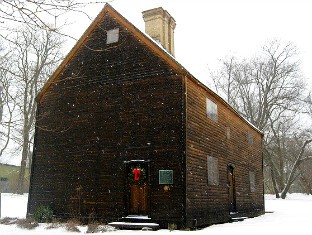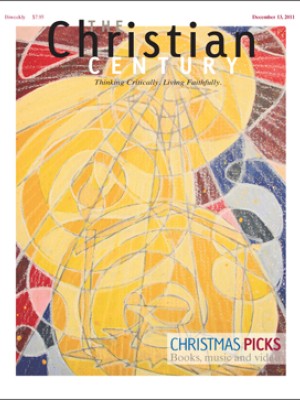A this-worldly story
When our children were young, we tried to shield them from the excesses of the cultural, materialistic and market-driven year-end holiday. We wanted them to understand that for us Christmas was about the birth of Jesus and God's love; it had nothing to do with Rudolph, Frosty and a Santa Claus who brings gifts and toys in direct correlation to a child's compliant behavior. We failed miserably. In Christmas: Festival of Incarnation, Donald Heinz notes that Christians have always lamented and resisted the cultural captivity of Christmas. From the beginning they've tried to separate themselves from year-end festivities. But, says Heinz, it's been a "spectacular failure of theological imagination."
Even before the Romans, the winter solstice was an occasion of thanksgiving and celebration. The darkness and cold of the retreating sun inspired terror, and when the sun finally started its slow return, ancient peoples marked the event with feasting and fertility celebrations. Some of their symbols are still with us: boughs of evergreen, holly and ivy, wreaths.
Read our latest issue or browse back issues.
Later the Romans marked year's end with Saturnalia, a raucous weeklong party. Christians decided to offer an alternative and began to celebrate the incarnation with Christ's Mass. Their hope was that in time Christ's Mass would replace Saturnalia. That effort failed, Heinz says, as has every church's attempt to banish the secular festival.
Nobody was as hard on Christmas as the Puritans, notes Heinz. "They argued that December 25 was not biblical but heathen, that Jesus would have disapproved of his birthday celebrations, and that Christmas was just an excuse for . . . gross behavior, social upheaval, and drunkenness, no doubt aided by the lull in agricultural life." The Puritans ordered shops to stay open, insisted that work go on as usual and banned holiday cakes and candles. They also managed to have Christmas declared illegal by the Massachusetts legislature from 1659 to 1681. Heinz reports that the U.S. Congress even remained in session on Christmas Day from 1789 to 1851.
The Puritans did a lot of good things, but banning Christmas because of eating, drinking and celebrating, not to mention pagan customs like kissing under the mistletoe, was not one of their more admirable ideas.
After all, incarnation means that this world is God's creation and that God loved it so much that God came here to be with us. The story could not be more this-worldly: pregnant, unwed teenager, perplexed fiancé, arduous journey, inn full of raucous guests, barn full of animals, labor, pain, blood, birth and shepherds.
It could not be more human or more earthy, and that is the point. Incarnation means that God is with us in this world, the sacred in the secular, the holy in the profane. It is this world that God entered on that first Christmas and enters again and again.







